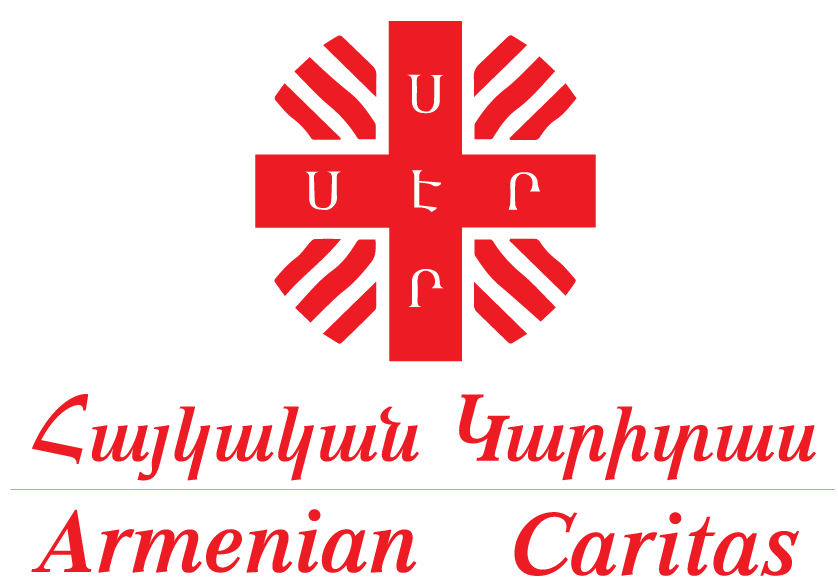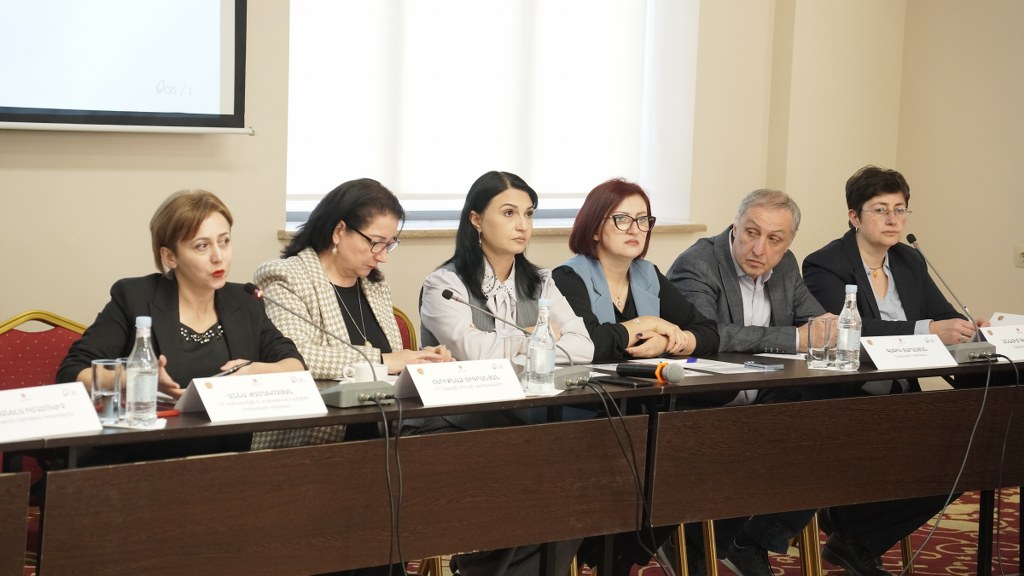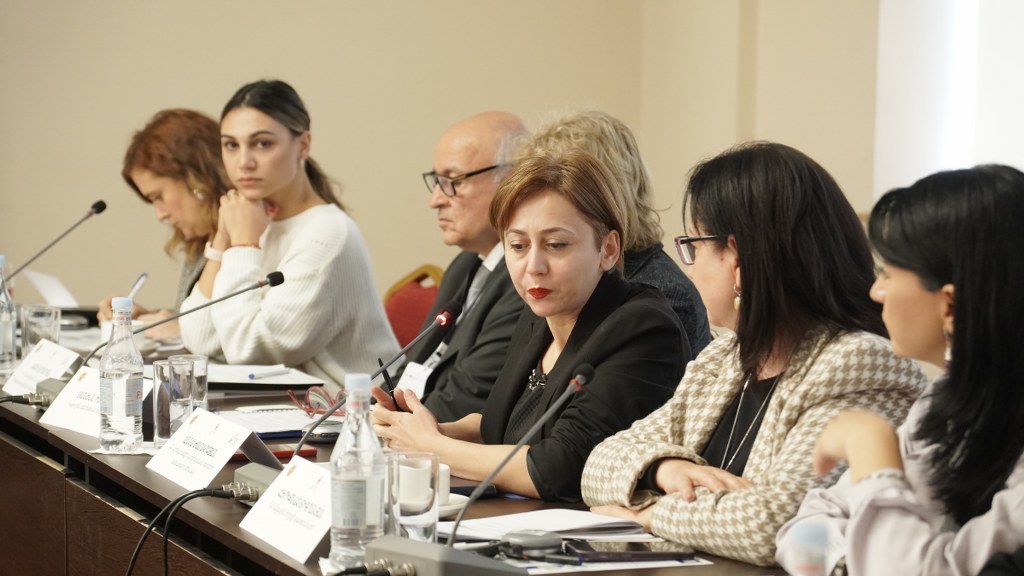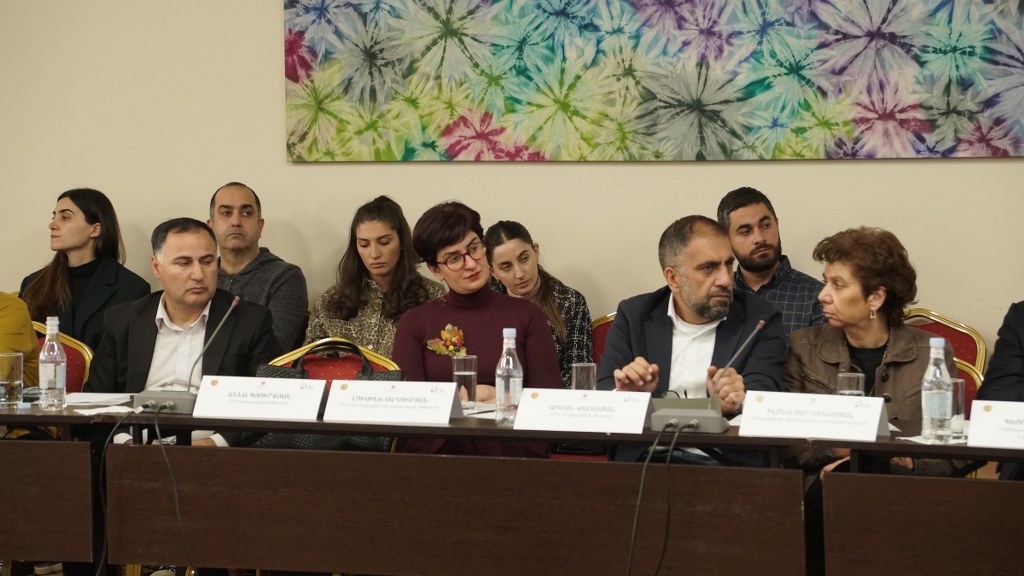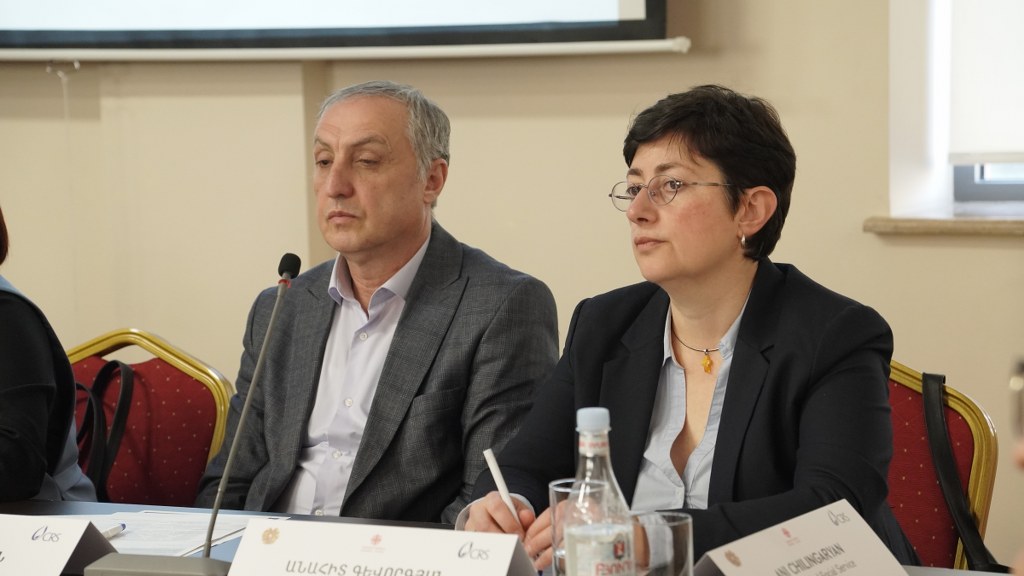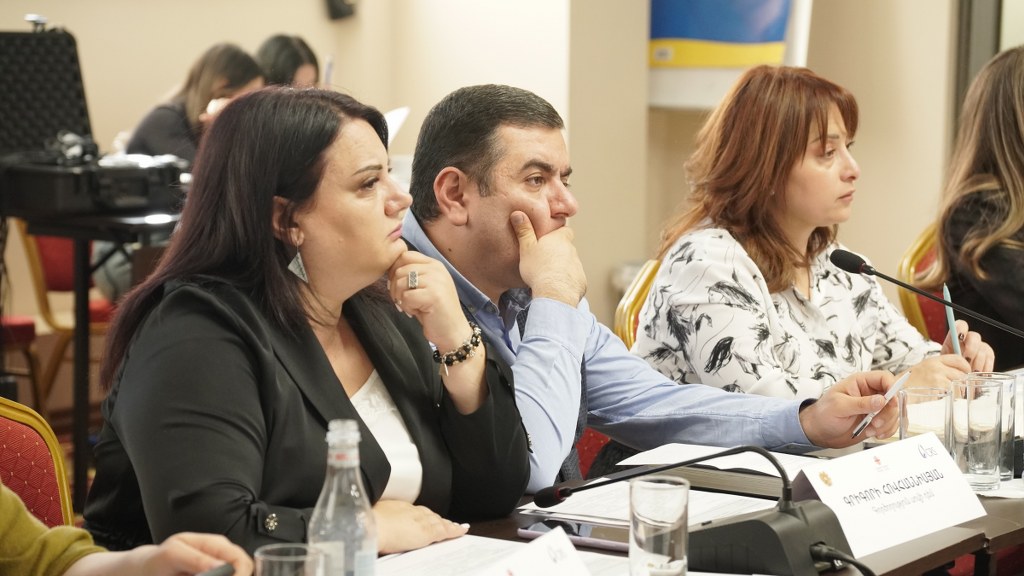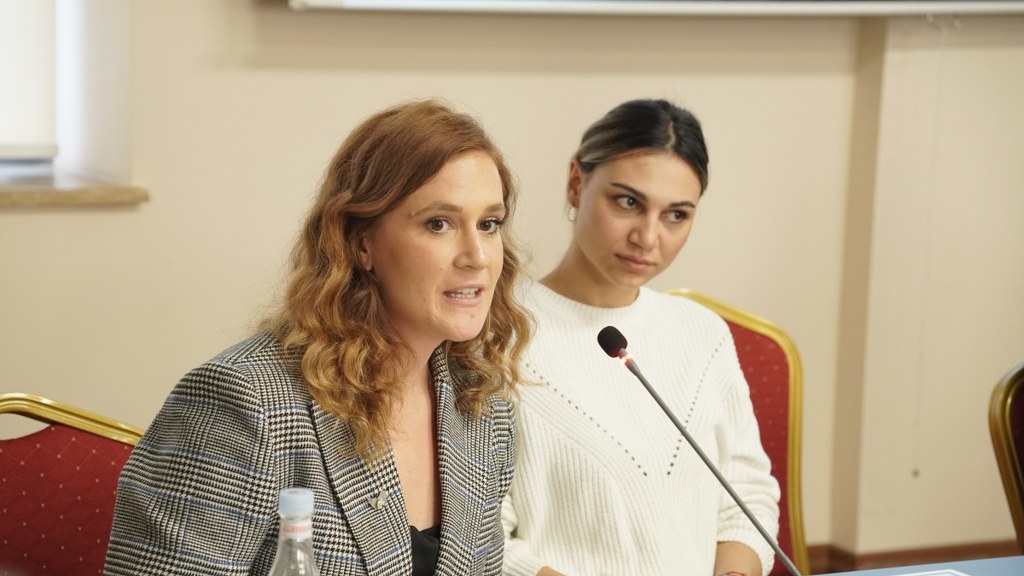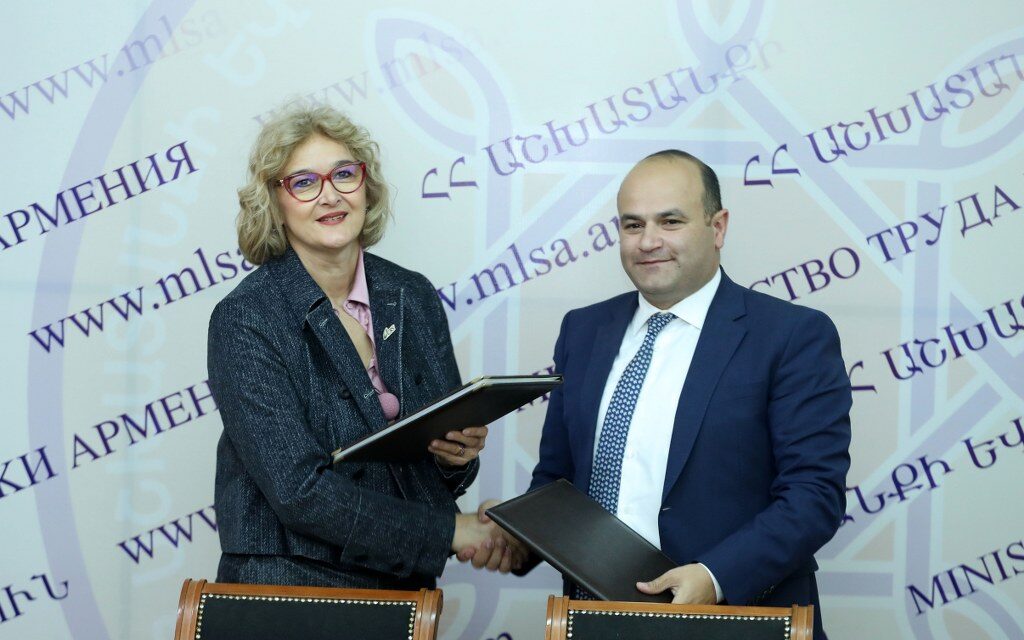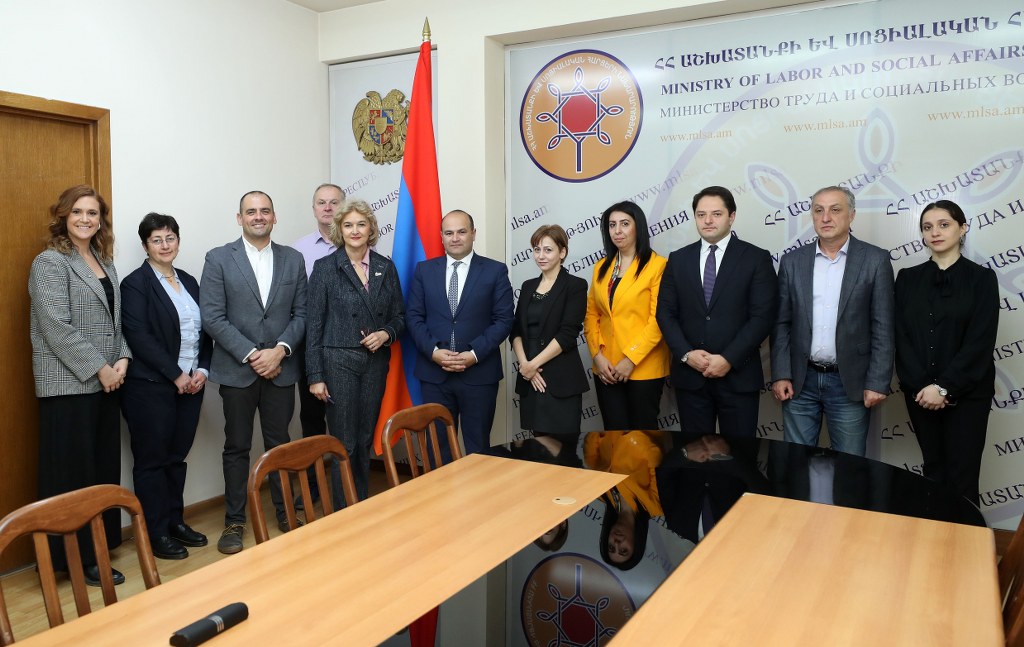To improve and develop social housing policy in Armenia, a Memorandum of Understanding was signed between the Ministry of Labor and Social Affairs and CRS–United States Conference of Catholic Bishops.
Under this document, the parties committed to joining efforts to support the continuous development of Armenia’s social housing fund and its management. Within this cooperation, a pilot program is planned, which will create an opportunity to apply the positive experience of the Republic of Bosnia and Herzegovina by localizing a successful, sustainable, and self-sufficient model of social housing provision in Armenia.
Following the signing of the memorandum, a roundtable discussion titled “Ensuring Social Housing Accessibility Policy in the Republic of Armenia” took place. It was jointly organized by the Ministry of Labor and Social Affairs, the Bosnia and Herzegovina office of CRS, and the charitable NGO Armenian Caritas. Representatives from legislative and executive bodies, international organizations, local NGOs, and the private sector also attended the roundtable.
During the roundtable, discussions covered Armenia’s vision for ensuring social housing accessibility, potential collaborations among stakeholders, and the importance of involving organizations and bodies engaged in other social housing models and services.
Anna Zhamakochyan, Deputy Minister of Labor and Social Affairs, presented the ministry’s priorities and planned actions in the field of social housing policy. According to her, steps are being taken by the ministry to improve access to social housing in Armenia and enhance the field, taking into account the needs of forcibly displaced individuals from Nagorno-Karabakh, as well as local vulnerable families and individuals. These ongoing efforts include developing a unified social housing policy framework and action plan, as well as assessments and renovations of individual buildings to convert them into social housing units.
“In recent years, steps have been taken by the ministry to ensure social housing access and improve the sector in Armenia, considering the needs of forcibly displaced individuals from Nagorno-Karabakh and local vulnerable families. I am hopeful that with the technical support of CRS operating in Bosnia and Herzegovina, as well as the combined efforts of our local and international partners, we will achieve tangible results,” noted Anna Zhamakochyan.
Sanela Imamović, Head of CRS’s Balkan office, stated: “CRS is a U.S.-based non-governmental organization. We are pleased to be in Armenia to support the Ministry of Labor and Social Affairs’ efforts to address the housing needs of displaced persons and local vulnerable groups through a non-commercial social housing model. In the past decade, our organization has successfully supported the government of Bosnia and Herzegovina in addressing long-term displacement issues by creating a non-commercial social housing system. We believe that our experience in Bosnia and Herzegovina will contribute to developing and implementing accessible, sustainable, and long-term housing solutions in Armenia. By signing the Memorandum of Understanding with the Ministry, CRS is committed to providing technical support for policy development, implementing a non-commercial social housing pilot program, and mobilizing resources for joint actions. This is the beginning of a partnership with the Ministry, where we will collaborate with Armenian Caritas, Mission Armenia NGO, Action Against Hunger NGO, and local experts.”
The discussion continued with a comprehensive analysis of sector needs and an introduction to the non-commercial social housing model implemented in Bosnia. Representatives of UNDP, UNHCR, and NGOs active in the sector then presented their completed and planned work in the field. Through a Q&A session, participants offered suggestions and insights on the topic.
